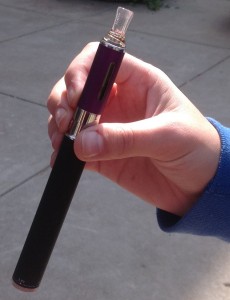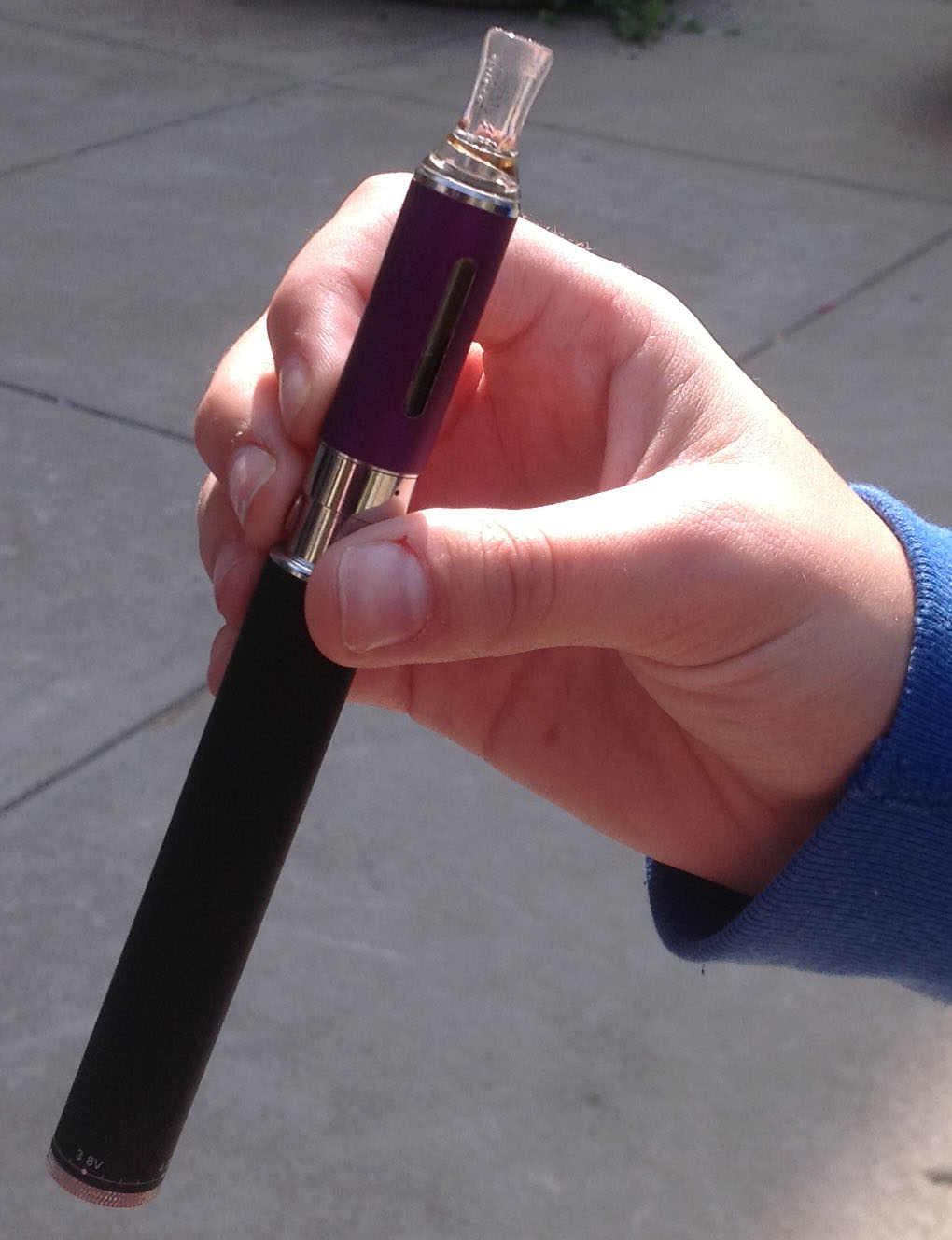About a month ago, junior Nick Ronnei went to see his doctor about a cough, and was persuaded to replace his cigarettes with an electronic one. Since then, Ronnei has smoked very few cigarettes. Instead, he smokes his e-cigarette in his off-campus apartment, in his car, or outside on campus.
But Ronnei might not be able to use his e-cigarette—which emits vapor instead of smoke—on campus come January. The tobacco ban proposed by the Undergraduate Student Government last year could take effect after the new year if the language and implementation plan passes its last review, making e-cigarette use on campus a violation of university policy.
According to the Centers for Disease Control and Prevention, “electronic cigarettes, or e-cigarettes, are battery-powered devices that provide doses of nicotine and other additives to the user in an aerosol.” National sales of e-cigarettes are expected to total over $1 billion in 2013, with their popularity rising due to a $1.60-a-pack tobacco tax hike on cigarettes in Minnesota in July, according to the Star Tribune.

Despite their popularity, Residence Life Director Aaron Macke said e-cigarettes are banned in all buildings on campus, including dorm rooms.
Even though they don’t contain tobacco or emit smoke, USG President Jenna Johnson said e-cigarettes would be prohibited on campus if a policy banning tobacco passes.
“For the purpose of this policy, “tobacco” is defined to include any lighted cigarette, cigar, pipe, clove cigarette, hookah smoked products, electronic cigarettes and any other smoking product; and smokeless or spit tobacco,” Johnson said. “We are focusing on a very healthy campus, and we are focusing on the health of the students.”
Ronnei, however, said he believes that even though e-cigarettes are unhealthy, they should not be banned.
“I really think that it’s silly,” Ronnei said. “People who go here are adults, and they’re making their own adult decisions. If you don’t want to smoke a cigarette, don’t smoke a cigarette.”
Junior Emma Haas said she thinks e-cigarettes are much safer than regular cigarettes, and that a ban would be difficult to enforce.
“What’s actually in (e-cigarettes) is just nicotine, propylene glycol and vegetable glycerine,” Haas said. “You can smoke them inside … and you can’t tell because it smells like fruit; it smells like you’re chewing gum.”
Birdie Cunningham, the Wellness Center’s health educator, said e-cigarettes can be harmful.
“There are numerous health effects of smoking e-cigarettes,” Cunningham said. “The FDA has found cancer-causing substances … and studies have shown that e-cigarettes can cause short term lung changes.”
According to the CDC, e-cigarettes do contain genotoxins and animal carcinogens. Most e-cigarettes are not regulated by the FDA, and many states have no restrictions on their sale to minors.
Freshman Lizzy Thibault said she thinks banning e-cigarettes is unnecessary.
“They seem to help with addiction,” Thibault said.
Sophomore Alex Frister said while he is not personally bothered by e-cigarettes, he still approves of the tobacco ban.
“I wouldn’t think it’s a big deal, but other people might not like (e-cigarettes),” Frister said.
Haas, who started using her e-cigarette as a way to quit smoking, said that if e-cigarettes are prohibited she will probably use hers less, which is part of the ban’s goal.
“I don’t smoke it that much,” Haas said. “I do it in the car, or just when I’m bored. I’m trying to actually quit, so eventually I’m not going to even be smoking the e-cigarette.”
Ronnei said he doesn’t think it’s the university’s job to get students to quit.
“If you are smoking a cigarette, you know that it is bad for you,” Ronnei said. “It says so right on the package that it will kill you. If you don’t like somebody smoking a cigarette around you, ask them to stop. Don’t ban them on campus.”
Grace Pastoor can be reached at past6138@stthomas.edu.


While St. Thomas provides a lot of services through health services and the Wellness Center, have they considered starting a tobacco cessation program?